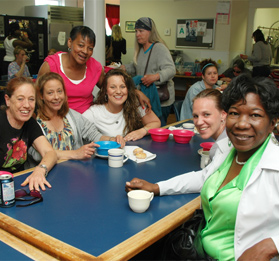Recovery Ministry and The Local Church
If you told me five years ago that recovery ministry would make as much progress in the Christian community as it has made during the last five years, I would have said you were crazy. There is still a long, long way to go of course… but significant progress has been make. It occurred to me recently that I have seen six distinct ways in which local churches invest in recovery ministry and I think it has some value to distinguish between these different approaches.

AA In The Basement Strategy
Historically the most common way for local churches to be involved in recovery ministry is for the church to allow AA or NA or some other organization to meet in church facilities. It is difficult to imagine where AA would be today if it were not for this kind of participation by local churches over the years. Literally hundreds of thousands of people have begun their sobriety in AA meetings in church basements. This is a wonderful kind of ministry for a local church. Even though most of us are very supportive of AA and other ‘secular’ programs, however, something makes us anxious about congregations whose commitment to recovery is limited to this strategy. Why is it that the power for personal transformation is facilitated by an organization external to the local church while the local church contributes only space? Why is recovery ministry at the margins of congregational life rather than at the center? Don’t misread me here – I am not suggesting that the church become more entangled with AA. What I am suggesting is that if recovery ministry remains at the margins of congregational life, we will miss enormous opportunities.
Recovery Ministry and The Local Church Read More »









